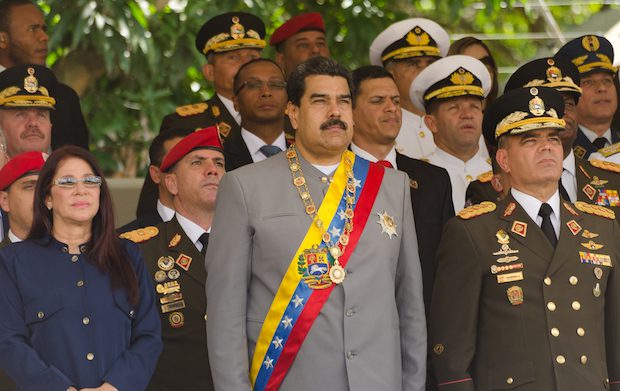The Fantasies of Regime Changers

Regime changers always assume that toppling another government will be simpler and less costly than it turns out to be:
Many among Venezuela’s opposition and its U.S. backers figured President Nicolás Maduro’s regime would crumble quickly after Washington threw its support behind a plan designed to sap his military support and spur his exit. It hasn’t happened that way.
Three weeks after the head of the country’s national assembly, Juan Guaidó, declared himself interim president, Mr. Maduro remains firmly in control, prompting some to call that plan into question.
“The people who devised it in Caracas and sold it here [in Washington], sold it with the promise that if Guaidó made a move and [South American countries] and the U.S. came in behind, the military would flip and Maduro would go,” said a former senior U.S. official. “They thought it was a 24-hour operation.” [bold mine-DL]
Hawks frequently indulge in magical thinking that if an American president “speaks out” or declares support for the opposition in another country it will lead in short order to the collapse of the regime. Iran hawks are still berating Obama for his supposed failure to express more support for the Green movement protesters, and ten years later they are pretending that more U.S. backing could have brought down the Iranian government. (Never mind that the protesters weren’t even seeking regime change.) These fantasies are rooted in grossly overestimating the power of our government to affect political change in other countries and exaggerating the vulnerability of the targeted regime.
The reality is that U.S. interference on behalf of another country’s opposition rarely works to their advantage, and U.S. support can often be more of a hindrance to their success. One reason that our government’s interference is frequently harmful is that our officials usually have a very poor and ideologically-driven understanding of the political conditions in the other country. If the administration really thought that everything would be resolved in a day or two, that just proves how clueless they were from the start.
The U.S. shouldn’t have taken sides in Venezuela’s internal political crisis, and it certainly shouldn’t have taken such a hard-line, all-or-nothing position on how to resolve that crisis. Because of that hard-line position, it will be very difficult to reach a compromise solution that avoids violence. That could mean a very long and destructive standoff that benefits no one:
“Everything is predicated on that assumption that this will be quick. But what is the Plan B?” said Michael Shifter, president of the Inter-American Dialogue, a nonpartisan think tank in Washington. “What happens if sanctions last six months? It’s devastating. And you get more refugees from Venezuela across South America.”
Unfortunately, neither the hawks in Congress that pushed for this policy nor the administration appear to have given any thought to how any of this would work in practice. As regime changers always are, they were overconfident and oblivious to the potential pitfalls of the policy they were promoting. Our interference in Venezuela’s crisis is already making things worse, and the longer that the sanctions remain in place the worse it will be for the civilian population that has already had to endure a terrible humanitarian crisis.
Comments